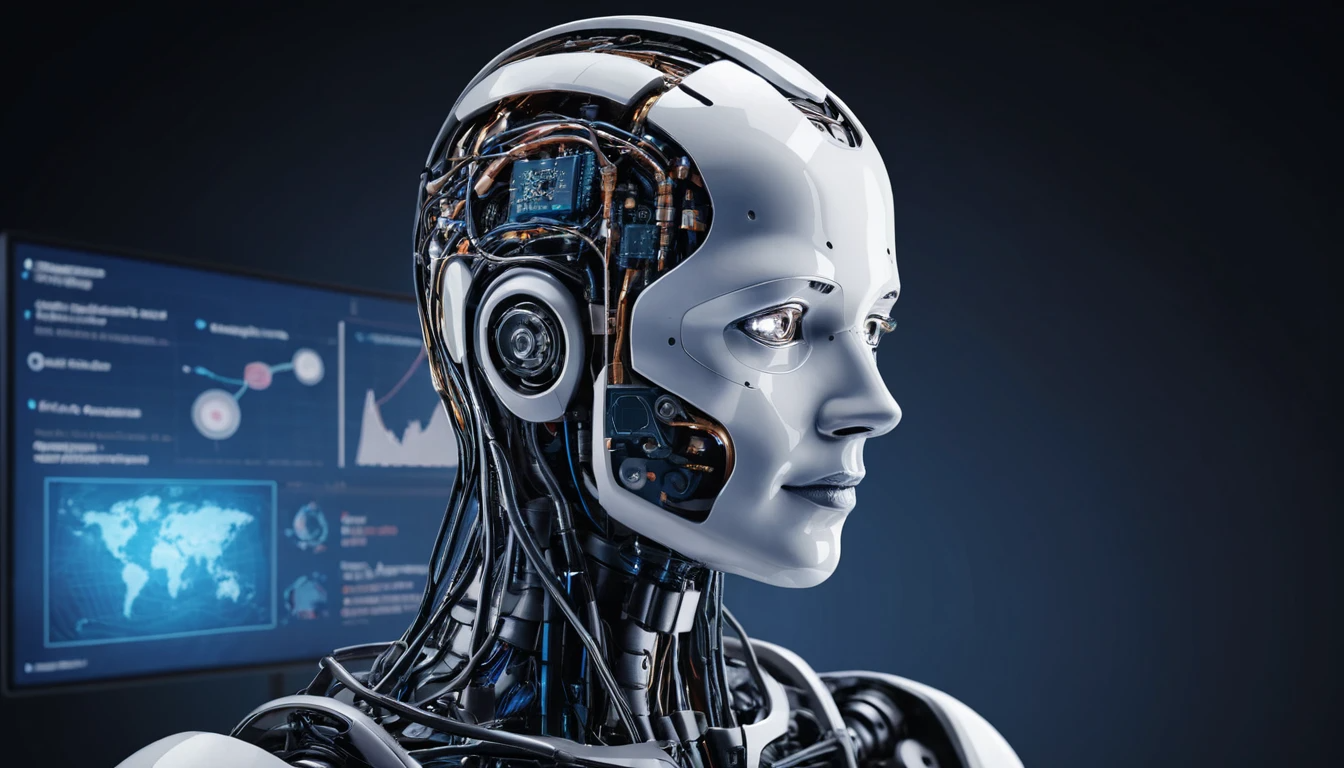In 2025, artificial intelligence (AI) is no longer a futuristic vision—it is an active and indispensable force reshaping the global business landscape. What began as a set of experimental tools has now matured into core infrastructure that powers the most agile, efficient, and customer-centric organizations. Businesses large and small, across all industries, are integrating AI not just to optimize operations, but to completely reimagine them.
From Automation to Intelligence
The early promise of AI focused on automating repetitive tasks. In 2025, AI goes far beyond that. Machine learning, natural language processing, and intelligent automation are empowering businesses to make faster decisions, personalize customer experiences at scale, and uncover insights from complex data that would otherwise be missed.
Whether it’s a marketing team automating campaign optimization, a supply chain manager predicting demand, or a startup founder building product roadmaps based on user feedback analysis—AI has become a strategic co-pilot.
Personalization at Scale
Today’s customers expect more than just good service—they want relevance, speed, and seamless interaction. AI enables hyper-personalization across channels:
- Recommender systems analyze real-time behavior and preferences.
- Chatbots and virtual agents handle support with human-like context awareness.
- Email and messaging platforms optimize content and send time per recipient.
Brands using AI in customer experience are seeing increased loyalty and lifetime value, as they meet users with exactly what they need, when they need it.
Better Decision-Making Through Data
Data is the new currency—but it’s AI that unlocks its value. Businesses in 2025 use AI to:
- Forecast trends based on internal and external signals
- Detect anomalies before they become problems
- Analyze customer behavior to refine product-market fit
Decision-makers now rely on AI-powered dashboards, predictive analytics, and scenario simulations to guide both everyday choices and long-term strategy.
Accelerating Innovation
AI is not just supporting innovation—it’s driving it. In R&D, AI is used to test hypotheses, simulate outcomes, and accelerate product development.
- Pharma companies use AI to model molecule behavior
- Engineers simulate product stress scenarios in virtual environments
- Creative teams generate content ideas and designs with generative AI
AI also fosters collaborative innovation, helping cross-functional teams work faster with shared, real-time insights.
Empowering the Workforce
AI is not about replacing people—it’s about enhancing their potential. In 2025, the most successful businesses are those that invest in AI to empower their teams:
- AI assistants help professionals draft content, schedule meetings, and manage knowledge.
- HR departments use AI to identify skill gaps and recommend personalized learning paths.
- Managers rely on AI-driven insights for team performance and workload balancing.
This shift toward augmentation rather than automation fosters a more resilient, capable, and future-ready workforce.
The Rise of AI-Driven Strategy
Strategic leaders now incorporate AI at the heart of their planning. AI helps simulate outcomes, model risk scenarios, and validate decisions before they’re made. This leads to:
- Faster pivots in changing markets
- Smarter investments in products and channels
- Greater agility across organizational levels
In 2025, businesses that leverage AI strategically are consistently outperforming those who still treat it as a support function.
Ethical AI and Responsible Use
As AI becomes more embedded in operations, companies face increasing pressure to ensure its ethical use. Responsible businesses are:
- Auditing algorithms for bias and fairness
- Protecting data privacy with transparent policies
- Building AI governance frameworks to align with social and legal expectations
The businesses that succeed long-term will be those that combine AI innovation with human-centered values.
Real-World Impact Across Sectors
- Retail: Dynamic pricing, automated inventory, personalized shopping
- Finance: Fraud detection, customer risk profiling, robo-advisors
- Healthcare: Diagnosis assistance, operational efficiency, patient engagement
- Manufacturing: Predictive maintenance, supply chain optimization, digital twins
Every industry is being touched by AI—and every business has the opportunity to lead with it.
Conclusion
AI in 2025 isn’t about replacing human intelligence—it’s about expanding what’s possible. The companies embracing AI as a core part of their strategy are not just surviving—they’re leading markets, delighting customers, and building resilient organizations for the future.
Whether you’re a founder, manager, or executive, now is the time to understand, implement, and scale AI across your business.

